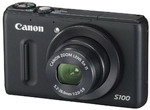In contrast to Artist David Hockney's thoughts (in the article posted
here) about digital manipulation causing the destruction of photography as an art form, Mike Johnston, in his weekly column on Luminous Landscape looks at "truth" in photography. This perhaps serves as a counterpoint, to some extent, to Hockney's argument, as Johnston argues about the authenticity of photographs as well, but not from the point of view of digital editing. He says that "the reason I use the term authentic instead of "honest" or other value-loaded terms is that I've come to believe that it's not ordinarily an ethical matter. Of course, we can all name propaganda photography that does harm, but most "dishonest" (i.e., not absolutely "found") photography does no harm. Also, it's impossible to ascribe motive or effect. One person may make a highly staged photograph that he feels simply illustrates his beliefs and outlook adequately, while another may feel that any staging whatsoever is abhorrent."
Johnston tries to bring out the differences between staged, directed, and found phographs. This is an interesting point of view in my opinion as I often wonder about some of the photographs that we see generated by the media and how they can be set up in order to influence the reader's point of view. However, "in the end, we depend on the reporter's word for her interpretation. All we can really do is take photographs at face value: and while they may be evidence, they are not proof. We all depend to some degree on trust. And trustworthiness. But you can't tell from the picture."












